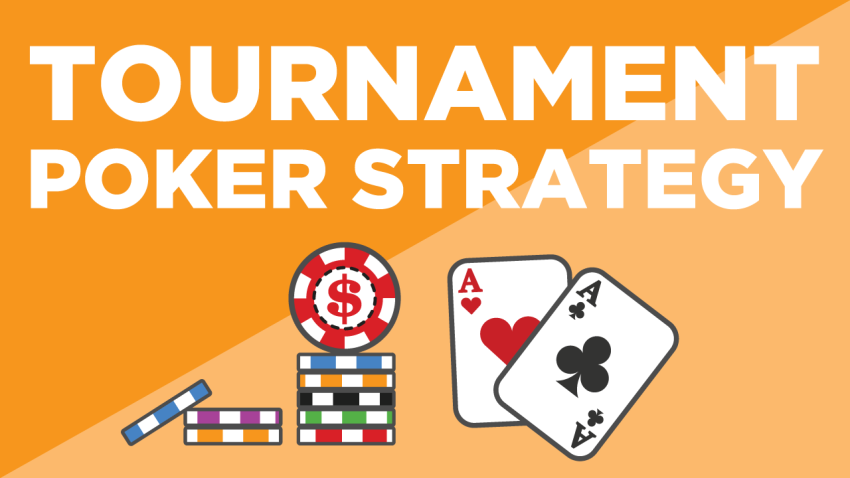Poker tournament strategies are essential for players looking to succeed in these competitive events. From understanding the nuances of poker chip values to mastering bankroll management in poker, a strong foundation in strategy can elevate your game significantly. Beginners should focus on gaining insights into their positions at the table and implementing solid poker tips for beginners to navigate the complexities of tournament play. Advanced poker strategies take these fundamentals a step further, allowing seasoned players to adapt their gameplay according to opponents’ behaviors. With the right approach, players can enhance their chances of reaching the final table and claiming that coveted prize.
Engaging in poker tournaments requires a deep comprehension of the various tactics and methodologies that can greatly influence a player’s performance. Some may refer to these essential techniques as competitive poker approaches or strategic gameplay frameworks. Understanding your chip allocation, adapting to the dynamics of gameplay, and knowing how to leverage your position can make all the difference. In order to thrive in these high-stakes environments, players must also consider the financial aspects involved in their overall strategy. The interplay of strategic thinking, emotional control, and adaptability defines a successful tournament experience.
Essential Poker Tournament Strategies for Beginners
Every poker journey begins with mastering the foundational strategies, particularly for newcomers stepping into the electrifying realm of poker tournaments. One of the first essential poker tournament strategies is understanding how to approach your initial play style as a beginner. This includes recognizing the importance of the starting hands you choose to play. Limiting your range to strong, premium hands can help you build your confidence and your chip stack over time. Many novice players often play too many hands, but starting with a disciplined approach will set you on a path toward more advanced poker strategies.
Another critical element in beginner strategies is the effective use of bankroll management in poker. Establish a clear budget for your tournament play that you can afford to lose. For instance, consider entering tournaments with a buy-in that represents a small percentage of your total bankroll to mitigate risks while still allowing you to participate actively. As you gain more experience, you can adjust your bankroll strategy to take advantage of larger opportunities without jeopardizing your entire poker experience.
Mastering Advanced Poker Strategies for Tournament Success
As players progress beyond the basic tactics, advanced poker strategies become paramount for achieving success in tournament play. For many, reading opponents becomes a cornerstone of their gameplay. Developing the skill to observe subtle changes in other players’ behaviors, such as betting patterns or body language, can provide crucial insights into their hand strength. This awareness equips players with a strategic advantage, enabling them to make informed decisions, whether to play aggressively or tighten up when necessary.
Moreover, understanding the dynamics of poker chip values within the tournament context is vital. Players should familiarize themselves with the chip colors and their associated values, which can significantly affect betting decisions and strategic calculations. Knowing when to leverage certain chip values can make or break a hand in crucial moments. Coupled with adaptive play styles, which involve adjusting strategies based on opponents’ behaviors, mastering these advanced strategies can position players for deeper runs in highly competitive tournaments.
Frequently Asked Questions
What are some essential poker tournament strategies for beginners?
For beginners entering poker tournaments, understanding key poker tournament strategies is crucial. Start by learning hand rankings to make informed decisions. Position is another important aspect; being in a later position allows you to gauge opponents’ actions effectively. Additionally, focus on bankroll management in poker; set a budget and stick to it, ensuring you play within your means. By grasping these basics, you’ll establish a solid foundation for your tournament play.
How can advanced poker strategies improve my tournament performance?
Implementing advanced poker strategies can significantly enhance your tournament performance. For example, learning to read your opponents’ betting patterns and body language can give you a competitive edge. Additionally, adjusting your play style based on the table dynamics is vital; tighten up against aggressive players while finding opportunities to bluff when the conditions are favorable. Mastering these advanced techniques, along with effective bankroll management and understanding poker positions, can lead to greater success in tournaments.
| Key Point | Description |
|---|---|
| Understanding Tournament Structure | Tournaments involve players paying a buy-in, leading to a prize pool and culminating in elimination until one winner remains. |
| Beginner Strategies | Focus on hand rankings, the importance of position, and effective bankroll management as foundational skills. |
| Advanced Strategies | Improve gameplay by reading opponents, adjusting play styles, and mastering the art of bluffing. |
| Poker Chip Values | Understand the significance of chip values, including standard values and color-coding, which affects betting strategies. |
Summary
Poker tournament strategies play a pivotal role in not only enhancing your gameplay but also in increasing your potential for success at the tables. As you navigate through tournaments, remember that taking the time to familiarize yourself with the structure and rules will set a strong foundation. Equally important is developing a keen awareness of hand rankings, position at the table, and how to manage your bankroll effectively. As you progress to advanced tactics, such as reading your opponents and executing well-timed bluffs, you’ll find your edge sharpening. With dedication to these poker tournament strategies, you’ll be well-equipped to handle the challenges of competitive play and improve your overall performance. Dive into the community, learn from each experience, and relish the journey of becoming a skilled tournament player.
